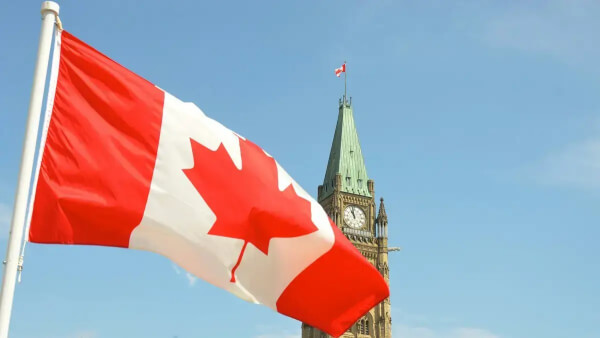From Stress to Success: Mastering Mental Well-Being in Business
As a small business owner, the journey towards success is often marked by relentless determination, long hours, and unexpected challenges. In the midst of...

Ready to take your business to new places? Expanding internationally can unlock a world of opportunities, enabling you to tap into new markets and potentially boost your profits. But with so many countries out there, where should you begin? In this blog post, we'll guide you through the top five easiest countries for UK businesses to expand to. Whether it's the close proximity of Ireland or the or the Asian financial hub of Singapore, expanding your business to other countries can bring a range of benefits. Discover all of them in the link below!
Benefits of expanding your business overseas
In addition to these advantages, international expansion enables businesses to leverage free trade agreements (FTAs). These agreements facilitate trade between countries by reducing barriers, such as tariffs or quotas, on goods and services.
| The UK has over 70 trade agreements in place, which businesses based in the UK can benefit from. These agreements include the UK-Australia Free Trade Agreement, UK-New Zealand Free Trade Agreement, Singapore Digital Economy Agreement, Japan Comprehensive Economic Partnership Agreement, and the Norway, Iceland, and Liechtenstein Free Trade Agreement. |
|---|
Expand overseas with Wise Business
With its close proximity and shared language with the UK, Ireland is an attractive option for British businesses. The two countries have a long-standing trading relationship, benefit from similar legal systems and are part of the EU-UK Trade and Cooperation Agreement which provides for zero tariffs and zero quotas on all goods that company with the appropriate rules of origin.
In addition, Ireland offers a low corporate tax rate of 12.5%, which is one of the lowest in Europe. This favourable taxation system has attracted many multinational corporations to set up their regional headquarters or operations in Ireland.
Some popular industries in Ireland include pharmaceuticals and chemicals - they're the largest contributor to industrial production in the country. The agri-food sector including the production of beef, dairy products, and high-value dairy brands generates a significant portion of the country's gross value added. Ireland is home to over 900 software companies and is among the largest exporters of software-related goods.
How to start a business in Ireland
Companies operating in Northern Ireland can benefit from tariff-free access to a market of over 500 million consumers due to Northern Ireland's unique market access position. By establishing a business in Northern Ireland, companies can sell goods to both Great Britain and the EU without customs forms, declarations, or non-tariff barriers. This is a result of the agreements made between the UK and the EU, which provide tariff-free access to these two major markets.
Northern Ireland has a strong presence in aerospace, with expertise in advanced manufacturing sectors like aerospace and materials handling. Although not as prominent as in the past, shipbuilding remains an important industry in the eastern parts of Northern Ireland.
| Manage GBP and EUR in one international business account with Wise and enjoy mid-market exchange rate with low and transparent fees. |
|---|
Canada has strong ties with the UK through historical and cultural connections, the country offers a stable economy, ease of doing business, and a large consumer market. Moreover, both countries share membership in the Commonwealth which further facilitates trade relations.
One of the key advantages of expanding to Canada is the existing free trade agreement between Canada and the UK.This agreement eliminates many barriers and tariffs that can impede international trade, making it easier for UK businesses to enter the Canadian market.
In addition, the UK is also in the process of negotiating an upgraded free trade agreement with Canada, aiming to remove barriers, fight protectionism, and enhance economic growth for both nations.
Another attractive aspect of expanding to Canada is its proximity to the United States. The North American Free Trade Agreement (NAFTA), which includes both Canada and the US, further facilitates trade between these two countries. This means that not only can UK businesses easily access Canadian markets but they can also tap into one of the largest consumer markets in the world. For example, if you are a company exporting car manufacturing parts to Canada, your wholesales in Canada could sell those goods onto the US market easily, thanks to NAFTA.
The main industries in Canada are real estate, manufacturing, mining and finance. The real estate industry is significant in regions like Vancouver and Toronto. Canada is also a major player in the mining sector, with companies involved in the extraction of various sources such as gold, zinc, copper and nickel. Additionally, the manufacturing industry, centred in southern Ontario and Quebec, is a key economic driver, with a focus on automobiles and aeronautics.
| The Wise Business account offers 9+ account details including GBP, EUR, CAD, USD or SGD. |
|---|
Expanding a UK business to Singapore can be an attractive opportunity due to Singapore's strategic location as a gateway to the emerging markets of Asia including China, India or Indonesia, its pro-business environment, and strong government support for business. Singapore is home to over 5,000 British businesses, and the UK is Singapore's largest investor, indicating the strong business ties between the two countries. English is widely spoken in Singapore, which eliminates language barriers that may exist when expanding into other foreign markets. Guide me in Singapore is a great resource for any UK business considering expanding to Singapore.
The UK-Singapore Free Trade Agreement (UKSFTA) entered into force on 11 February 2021, ensuring continuity and certainty in trading arrangements between the UK and Singapore. Additionally, both countries have also signed a Digital Economy Agreement (DEA), which entered into force on 14 June 2022, aiming to benefit businesses and consumers through open digital markets, free flow of trusted data, and guaranteed protections for personal data and intellectual property.
The main industries in Singapore include manufacturing, financial services, tourism, and the world’s busiest cargo seaport. The manufacturing sector, particularly in electronics, chemicals, and biomedical sciences, contributes 20%-25% to the country's annual GDP. The financial services industry is also a significant driver of the economy, with Singapore being considered a global financial centre.
Australia shares many similarities with the UK in terms of language and legal systems which makes it an appealing choice for British companies looking to expand overseas. One of the key advantages of expanding to Australia is the strong cultural and historical ties between the two countries along with the Free Trade Agreement (FTA) which includes various benefits such as tariff-free trade for British goods, easier travel and work opportunities for young Britons in Australia, and access to billions of pounds worth of procurement contracts for British companies. The deal also aims to slash red tape for entrepreneurs and small businesses.
The fastest growing industries in Australia include healthcare, renewable energy, construction, engineering and technology. Australia's focus on renewable energy is driving growth in this sector, creating new job opportunities and contributing to the country's economic development. The construction industry is experiencing growth, supported by infrastructure development and investment in the country.
Get paid with AUD account details
As Europe's largest economy, Germany represents significant potential for growth across many industries. Having free trade agreements within EU member states makes Germany even more attractive. British companies may also find it easier to operate here due to similarities in business practices.
One of the key advantages of expanding to Germany is its position as a hub for international trade. As the largest economy in Europe, Germany has a vast network of global connections and free trade agreements with countries around the world. This makes it easier for UK businesses to establish partnerships and access new markets.
The UK and Germany have bilateral agreements and support programs to facilitate this process. For instance, the ZIM program in Germany is designed to enhance companies' capacity to innovate and strengthen their long-term competitiveness, and UK businesses can collaborate with German counterparts under this program.
Germany remains the UK's top destination for business in the EU, and the number of British companies setting up in Germany is increasing. The German finance minister has issued an open invitation to the UK to reach a new deal to improve Brexit trading relations. The implications of post-Brexit changes on Germany’s immigration laws, company formation, work permits, and visas are described in detail on the government website which also offers information on duties, customs, packaging and labelling, trade barriers, routes to market, and top UK goods exported to Germany.
The most growing industries in Germany include the automotive, mechanical engineering, chemical, and electrical industries, which dominate the country's industrial sector. Additionally, key growth sectors in Germany at present include healthcare and medical devices, plastics, and fintech. The German economy is the largest manufacturing economy in Europe, with a strong focus on automobiles, machinery, electrical equipment, and chemicals.
The UK and New Zealand signed a free trade agreement on 28 February 2022, which entered into force on 31 May 2023. This agreement aims to reduce barriers to trade between the two countries, removing tariffs on UK-New Zealand trade. The FTA is described as one of the highest quality and most comprehensive free trade agreements that New Zealand has ever concluded, reflecting the unique and close bond between the two countries. The deal guarantees that British service suppliers can compete in New Zealand, and it also ensures tariff-free access for British goods.
Some of the fastest growing industries in New Zealand include tourism, agribusiness, food processing, international education, advanced manufacturing, accommodation and food services, construction, and electricity, gas, water, and waste services. These industries are expected to achieve above-average global growth, with job opportunities in sectors such as environmental science, engineering geology, mining, and construction.
For all your international payment needs, Wise provides a multi-currency business account with fast, affordable and efficient international payments, local account details, no monthly subscriptions and more. Check out the table below to learn more about the Wise Business account!
International business account with Wise
Take your business to new places with Wise Business
*Please see terms of use and product availability for your region or visit Wise fees and pricing for the most up to date pricing and fee information.
This publication is provided for general information purposes and does not constitute legal, tax or other professional advice from Wise Payments Limited or its subsidiaries and its affiliates, and it is not intended as a substitute for obtaining advice from a financial advisor or any other professional.
We make no representations, warranties or guarantees, whether expressed or implied, that the content in the publication is accurate, complete or up to date.

As a small business owner, the journey towards success is often marked by relentless determination, long hours, and unexpected challenges. In the midst of...

As a business owner it’s crucial that you keep on top of your company’s financial health at all times, including profit and loss, balance and cash flow. This...

Running a business is rewarding - but it can also feel pretty hectic. When you’re starting out, and particularly if you’re looking to scale and expand...

Check out our guide on Canada tax codes. Get to grips with tax codes by province, federal income tax rates in Canada to help with international employees.

Looking to scale your business in Scotland? Check out this guide to business grants in Scotland from start up funding to government business grants and more.

Seeking funding for your business? This guide signposts what grants are available for small businesses in the UK and tips to help ensure application success.